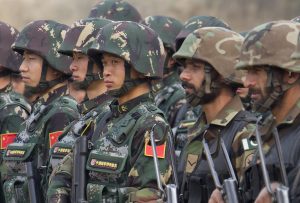As the United States embarks on its withdrawal from Afghanistan, some wonder what China will do given the country’s critical interests in South and Central Asia. Chinese President Xi Jinping’s Belt and Road Initiative is merely the latest articulation of a strategic narrative that imbues the South and Central Asian region with critical importance to China. As Raffaello Pantucci, a senior fellow at the Royal United Services Institute (RUSI), explains in the following interview, China has long-running interests in the wider region. While Beijing is not poised to follow the Soviet Union and now, the United States, into the “graveyard of empires,” those interests remain important to China.
What interests in the wider South and Central Asia region most draw Beijing’s attention?
China is most worried about security problems it perceives as being based in South and Central Asia which might threaten domestic stability. Principal amongst these is a fear that the region might become a staging ground for Uyghur dissidents or militants to create instability in Xinjiang. A secondary group of concerns emanates from a fear of threats to Chinese economic investments and interests in the region. In Beijing’s conception these investments are also linked to Xinjiang as well, as their success is in part linked to prosperity and growth in Xinjiang, which China sees as the key to longer-term stability within its borders.
At a wider strategic level, China is worried that the region could be used by adversary powers, like the United States, as a place from which to foment instability within China. This has most recently been tied by the Ministry of Foreign Affairs directly to Afghanistan, but is a persistent fear that has always lurked in the back of Chinese minds. From their perspective, the region is their backyard and directly linked to some of the most sensitive parts of their country.
Finally, this region is the cradle of Xi Jinping’s foreign policy vision, the Belt and Road Initiative (BRI). The concept was launched in the Kazakh capital, then-Astana (now Nur-Sultan), and the China-Pakistan Economic Corridor (CPEC) is called the keynote project of the vision. This gives it a particular importance conceptually to Beijing as failure here would be tantamount to failure of his vision. The economic interests that are linked to BRI in the region are important to China, but are often overstated as the priorities for Beijing’s concerns. The economic interests are important to the specific firms involved; the strategic aspect comes in terms of the impact they might have on domestic growth and stability, in particular in Xinjiang.

































